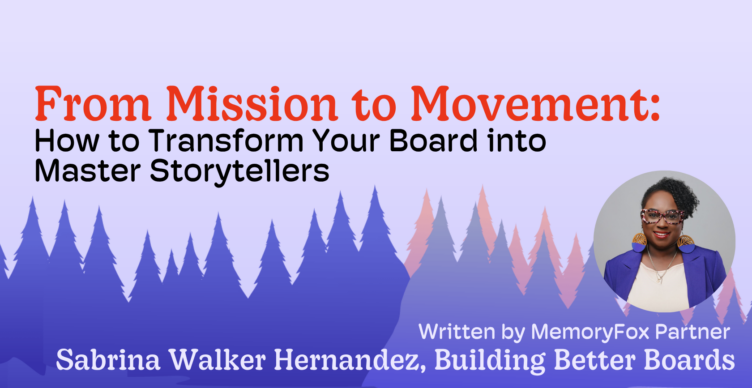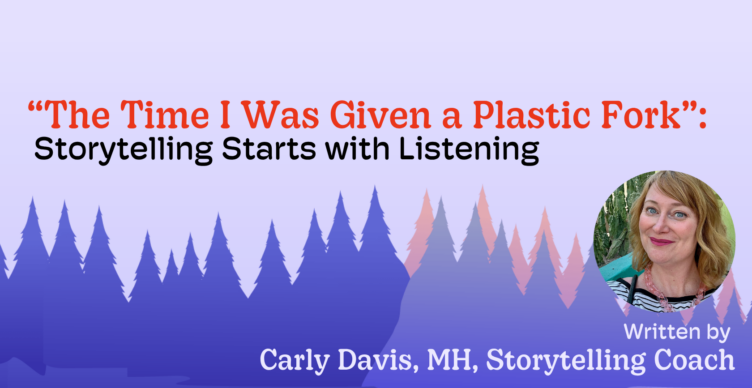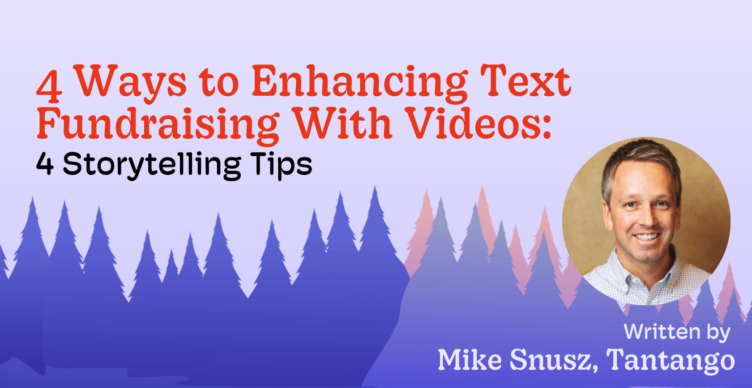Why is Storytelling Important in Nonprofit Marketing?

Why is Storytelling Important in Nonprofit Marketing? Storytelling is so ingrained in our daily lives that we sometimes may not even recognize it as such. If you think about it, nearly every aspect of our lives contains a narrative. The more obvious examples include books, movies, TV shows, and music, but storytelling is the main driving factor behind creating religion, cults, nations, types of government systems, traditions, and more.
Stories are all around us, everywhere, all the time, and they have a profound influence on our lives.
What does a child say to their parent before bed every night?
“Can you tell me a story?”
What about friends hanging out at the bar or dinner?
“Anyone have any good stories?”
Our brains are hardwired to love telling and hearing stories. Stories are multi-functional, too. Not only do they provide us with entertainment, but they also serve other functions, such as:
-
Teaching us lessons
-
Preserving cultural norms
-
Instilling values
Everyone has a story to tell that is uniquely their own. Our team at MemoryFox is here to help you share that story.
No one in the world can tell your story better than you. We are simply here to ensure that it is told in the most engaging and powerful way possible. We want to make it impossible for people not to listen. That is when real change can occur.
The Evolution of Storytelling
It’s impossible to trace history back to the origin of the first story told, but historians have ascertained that people began telling tales as soon as they developed the ability to speak, and perhaps even sooner via a type of sign language. In fact, early humans used storytelling as a tool to exchange knowledge, warn each other about dangers, and relay personal experiences.
The personal experience may have been as simple as something like, “I ate that plant over there and it’s super gross” or as complex as a hunting tale outlining several times in which the storyteller saved the day. I’d imagine that varying personality types shone through even back then.
Climbing the Social Ladder
When groups of humans began to live in settlements and societies developed, storytelling became a tool of social influence. If someone wanted to obtain a certain position, such as a priest, priestess, king, queen, minister, shaman, healer, etc., they had better tell a relevant and trans formative story—one that people remembered and felt compelled to pass on to others.
If you could convince enough people that you were the best for such a position, then you could obtain that position. This, of course, still rings true today, with presidents, prime ministers, dictators, senators, congressman, and more. On a smaller scale, storytelling functions in a very similar manner, whether a man is attempting to convince a woman to go on a date with him or a child is explaining why they deserve a pint of ice cream for dinner.
Historically, the best storytellers have come out on top, whether their story was based in reality or not.
Why is Storytelling Important in Nonprofit Marketing?
Further, people told stories in order to explain the existence of phenomena they couldn’t understand—and to this day, many of these myths and legends survive. Who hasn’t heard of Robin Hood, the thief that steals from the rich and gives to the poor? What about the Greek myth of Narcissus, the excessively handsome man who fell in love with his own reflection? If you’ve ever referred to someone as a narcissist, you’ve seen the influence of mythology—and with it, storytelling—at work.
To this day, we can’t get enough of quality stories. Stories that move us, stories that change us, stories that resonate with us for one reason or another. And although the medium of the story has evolved significantly—from verbal recounts to the written word to where we are now, in a world of digital storytelling—the core is very much the same.
It’s no secret as to why sites like Humans of New York are so successful. They tap into an innate desire for connection.
The Power of Story: The Science Behind Driving Engagement
Stories are so powerful that it’s likely you have no idea how much they truly impact you. Before you know what hit you, you’re swept up in a persuasive speech, such as a TED Talk, that transports you to another place. When you return from this place, you may have a new belief or opinion about a topic, simply because of the story you listened to. It’s kind of crazy when you think of it that way, but it happens all the time.
One of the major downsides of existence is that we only get to live one life, with one set of unique experiences. We can’t possibly understand what it’s like to be another person, let alone thousands of other people. Thankfully, storytelling acts as a way to promote empathy, our ability to experience the emotions of other individuals. People want to understand what it feels like to be someone else.
One scientific study revealed that character-driven narratives release oxytocin in the brain. Oxytocin is an important hormone involved in social bonding and trust, and it increases our ability to empathize with others. The researchers found that the amount of this hormone predicted to what extent people were willing to help other people out—a specific example was that of donating to a charity related to the story that had been told. Think a campaign on GoFundMe or Indiegogo. There’s a reason there’s a space for people to share their experience related to the fundraiser. No one wants to donate to something or someone that they know nothing about.
According to these researchers, in order for the story to be effective, it must be able to grab and keep someone’s attention by means of tension. If the story creates tension, then the viewers, listeners, or readers will likely connect with the characters of the story, and ultimately, feel compelled to take action to help—whether that help involves donating, volunteering, sharing the story, or otherwise.
So why is storytelling important in nonprofit marketing? Simply think of it this way – a story can make someone feel closer to you, and when they feel closer to you, they are more willing to engage with you and your cause. And honestly, there are not many things that are better than hearing someone say, “Hey, I read your story. I love it and I want to help.”
Want our help telling your story? Set up a demo today to get started.
Written by: Marisa Crane




